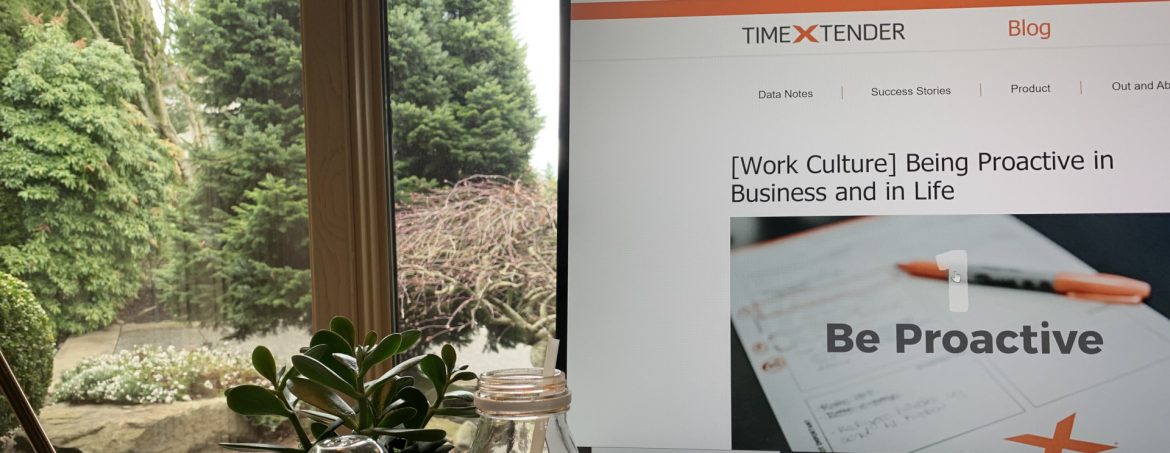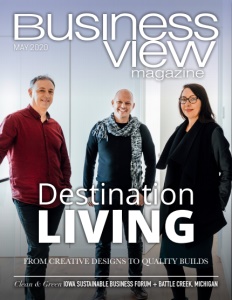By Anne Krog Iversen, Chief People, DNA and Culture Officer of TimeXtender
“Between stimulus and response there is a space. In that space is our power to choose our response. In our response lies our growth and our freedom.” Dr. Viktor E. Frankl, Holocaust survivor, psychologist, professor and author.
Dr. Frankl shared that the prisoners he met in the concentration camp, although they had no choice to avoid this evil experience, they could choose to succumb their inner being to those in charge, or they could choose to preserve their inner strength and discover their own uplifting self-purpose.
We can learn from this message to help us cope with Covid-19.
I think it’s fair to say that many of us have had our share of pandemic news. We’re sheltered at home, restricted from our regular lifestyle habits and consumed with daily updates. And you know what, even though at times it may seem that we don’t have a choice in the matter, we actually do. Events are as you choose to see them.
Getting through these times of change is about mindset. It’s about how we choose to see this challenge. For me, being quarantined at home is an opportunity for discovering how to better collaborate with colleagues and network remotely, spending more time with family, and researching about new business practices and opportunities. I choose to learn, grow and trust, and this is a good time to do so.
Rather than seeing this as a crisis, my personal life-skills training teaches me that I choose to see this as a “window of opportunity.” I will admit that it can be a hard revelation and it does demand a bit of inner work and personal reflection, but I choose opportunity, hope and growth as a way of life – even during a global pandemic.
At our company, TimeXtender, we follow The 7 Habits of Highly Effective People created by Stephen Covey and now offered by Franklin Covey. Our training, and some of the ideas in this article, are based on their program. The 7 Habits are a shared language of our corporate culture and we practice it daily. Having these basic life skills embedded in our corporate DNA and culture has helped us continue to succeed during the pandemic, even as a global company with employees, partners and customers located all around the world who are now working remote.
To better understand, let us consider that we have reactive and proactive behavior. Reactive behavior means that we’re affected by outside events, which influence how we think, feel and act. With proactive behavior, we think, feel and act based on pre-determined principles and desired outcomes. Looking at this another way, we’re free to choose between a mindset based on victimhood or a mindset grounded on personal growth.
It’s normal to have thoughts of sadness at this time. I let myself be sad at times too, but I will not let it define me. We have the freedom to choose a proactive mindset. We can replace thoughts of sadness with thoughts of gratefulness. We have the freedom to choose what’s in our inner thoughts and can readily opt for a more powerful feeling that leaves us being more action-oriented with an optimistic outlook. We just need to be aware of how we use our thoughts, words and actions and, in doing so, we can actually influence the outcome for our colleagues, loved ones and ultimately the world.
The 7 Habits teaches us about paradigms and principles. Today, we have a choice to view the environment we face in a whole other light with positive vision, or what’s known as a “paradigm shift.” Rather than choosing to be captive to the pandemic, let us choose to be free.
Once we make the decision to view the environment differently, we can create personal principles to help us see this as our window of opportunity. For example, we might create a personal principle such as, “I choose to be proactive and live my life based on being positive, optimistic and hopeful.”
From here, I invite you to schedule a few measures that will help you achieve a more proactive mindset and positive outcome. Let’s consider a few examples.
Spend Energy on What You Can Control. It starts with choosing to focus on three actions a day that you can take that will make a difference in bettering yourself. Let’s aim for strengthening our inner work by practicing mindfulness; engaging in breathing exercises, visualization and reflection; and allocating time for enjoying pure silence.
Focus on the Positive. Use positive language instead of negative language with yourself and those around you, turning “can’t dos” into “can dos.” Listen to family, friends and colleagues with empathy and offer support and compassion for those who may be worried or concerned, rather than ridicule or criticism. Look for the win/win in all interactions with the people you deal with.
Turn to Kindness. Display encouragement for other people’s success, understanding that there’s plenty of victory for all of us. Send an invite to a friend telling how you miss seeing them and asking if you could schedule a video call. Hand write a letter to someone dear to you and express your gratitude for knowing them. And last but not least, be kind to yourself.
Develop a Routine. Make a proactive daily schedule with small commitments. You’ll feel great at the end of the day for your achievements. Keep with your routine that you’ve valued in the past such as reading the newspaper, exercising, dressing for work, or taking a walk.
Try New Activities. Now’s the time to proactively choose growth and invest in new activities that have always interested you. You could try studying a foreign language, playing an instrument, reading poetry or a classic, or watching opera online. You might even pick up an old hobby. The purpose is to keep your energy positive and find a way back to what makes you happy.
Display Uplifting Messages. Fill your home and workspace with positive messages and gratitude to keep an optimistic atmosphere. You might post a colorful banner on your door that reads “Stay Positive” or find uplifting poems to situate around your house. Keep the negative news to a limit and, instead, look for touching stories of people helping others in their community.
You are the navigator of your life’s path. If you focus on improving what’s inside, rather than worrying about what’s happening outside, you’re bound to land on more stable ground. What you water grows, and what you focus on does as well.
About the Author
Anne Krog Iversen is the Co-Founder and Chief DNA, People and Culture Officer at TimeXtender. Along with directing the company’s business culture, she built, implemented and manages corporate mindfulness together with TimeXtender’s team-oriented X-tended leadership circle.

